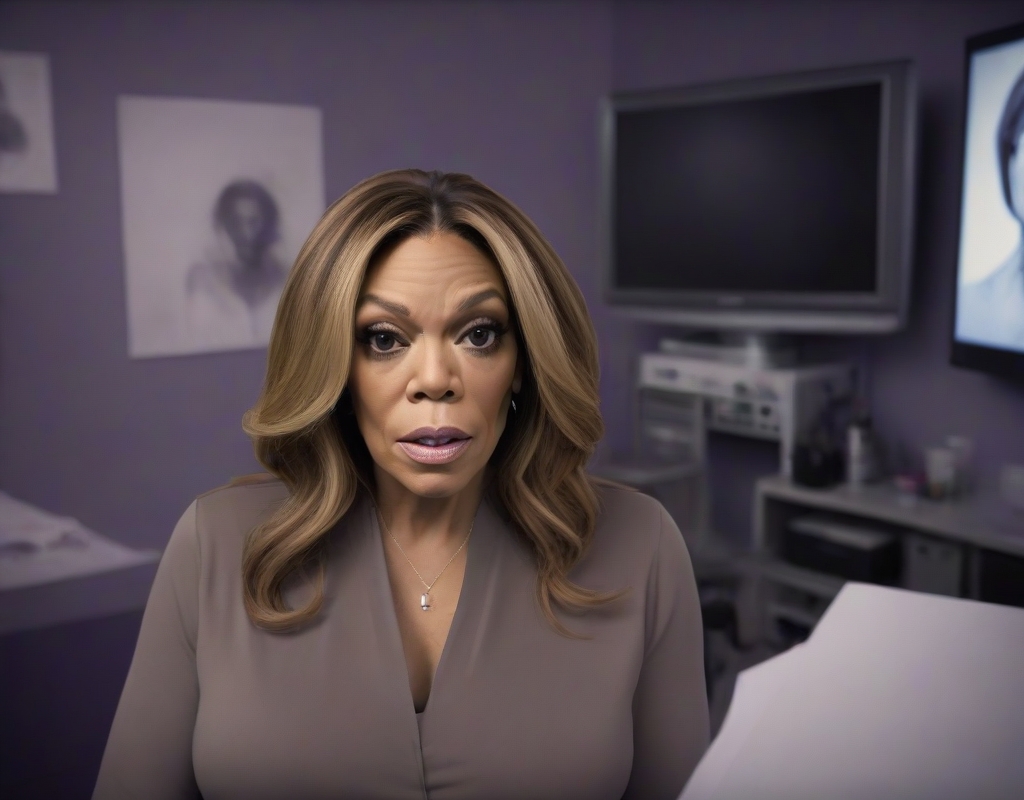Wendy Williams, once a vibrant force behind the hit ‘The Wendy Williams Show,’ has been facing profound challenges due to a severe health diagnosis. Described as permanently incapacitated by early-onset dementia, her condition has sparked a series of personal and legal complications, unveiling a myriad of complex issues surrounding her health care and public profile.
Despite her formidable screen presence and connection with her audience, Williams’ life altered dramatically following the announcement from her court-appointed guardian, Sabrina E. Morrissey. According to Morrissey, Wendy Williams is not only suffering from cognitive impairment but is also unable to manage her personal and legal affairs due to her diagnosis of frontotemporal dementia. This specific type of dementia is noted for its impact on the regions of the brain associated with personality and communication, which makes Williams’ case particularly poignant, given her former role as a communicator.
### Controversies Surrounding a Documentary
Amidst Wendy Williams’ health struggles, a new legal battle has emerged around the documentary titled “Where Is Wendy Williams?” produced by A&E Television Networks and Lifetime Entertainment. The film aims to explore Williams’ life after her show and her ongoing battle with her health conditions. Morrissey, stepping in for Williams, has sued the production companies, accusing them of exploiting Williams’ incapacitated state for their gain by filming without her informed consent.
This lawsuit touches on critical matters regarding the ethics of media production and the protection of the rights of individuals with diminished capacity. The narrative of the documentary and the circumstances of its production could lead to a broader discussion and potentially set legal precedents concerning the portrayal and treatment of celebrities, particularly those who can no longer advocate for themselves.
### Family Dynamics and Care Concerns
Amid these developments, Wendy Williams’ family, particularly her sister Wanda Finnie, has voiced discomfort with how Williams’ guardianship and healthcare have been handled. They claim that the family was kept in the dark about the severity of her condition following her transfer to a specialized care facility. These allegations shed light on potential vulnerabilities within the guardianship system, where lack of transparency and accountability may risk the welfare of the dependent individual.
The scenario Williams finds herself in highlights a pressing need for systemic changes to ensure that guardians act in the best interest of those they are tasked to protect. It also raises significant questions about ethical healthcare practices and the necessity of involving a person’s closest relations in their care discussions and decisions, especially when dealing with severe illnesses like dementia.
### Public Reaction and Ethical Media Practice
Despite the controversial battles surrounding her privacy and portrayal in the media, Williams has remained grateful for the public’s support, underscoring her desire to inspire resilience among others facing similar trials. Her situation has ignited public discourse on how individuals with cognitive challenges should be represented in the media and the responsibilities media outlets hold towards their subjects.
The forthcoming release of “Where Is Wendy Williams?” by Lifetime, despite legal attempts to halt it, continues to stir debate on the responsibilities media entities should bear. The network’s decision to proceed with airing the documentary has been met with mixed reactions, with some questioning the ethical implications of broadcasting the personal struggles of an incapacitated individual without clear consent.
### Compensation and Financial Ethics
Another dimension of Williams’ case is the remuneration she received for the documentary. The sum of $82,000 stands in stark contrast to the profits expected by the producers, raising concerns about fairness and exploitation. This situation underscores the need for policies ensuring that participants, especially those in vulnerable states, are justly compensated and fully informed or adequately represented in decision-making processes.
### Community and Fan Support
Despite the complex web of health, legal, and ethical issues, Williams continues to receive a profound outpouring of support from her fan base. This support is a testament to the impact she had on her audience and the broader community. Her openness in facing her condition has not only garnered her public sympathy but also stoked greater awareness and dialogue about dementia and the rights of those who suffer from incapacitating conditions.
As this ongoing scenario unfolds, it presents a potent narrative on the intersections of celebrity culture, health crises, and media responsibility. Wendy Williams’ case provides poignant insights into the struggles that can occur behind a public figure’s glamorous façade, serving as a reminder of the profound human experiences underlying celebrity stories. Through her profound adversity, Williams exemplifies resilience and the human spirit’s capacity to endure and inspire, informing ongoing conversations regarding care, representation, and ethical media practices.




